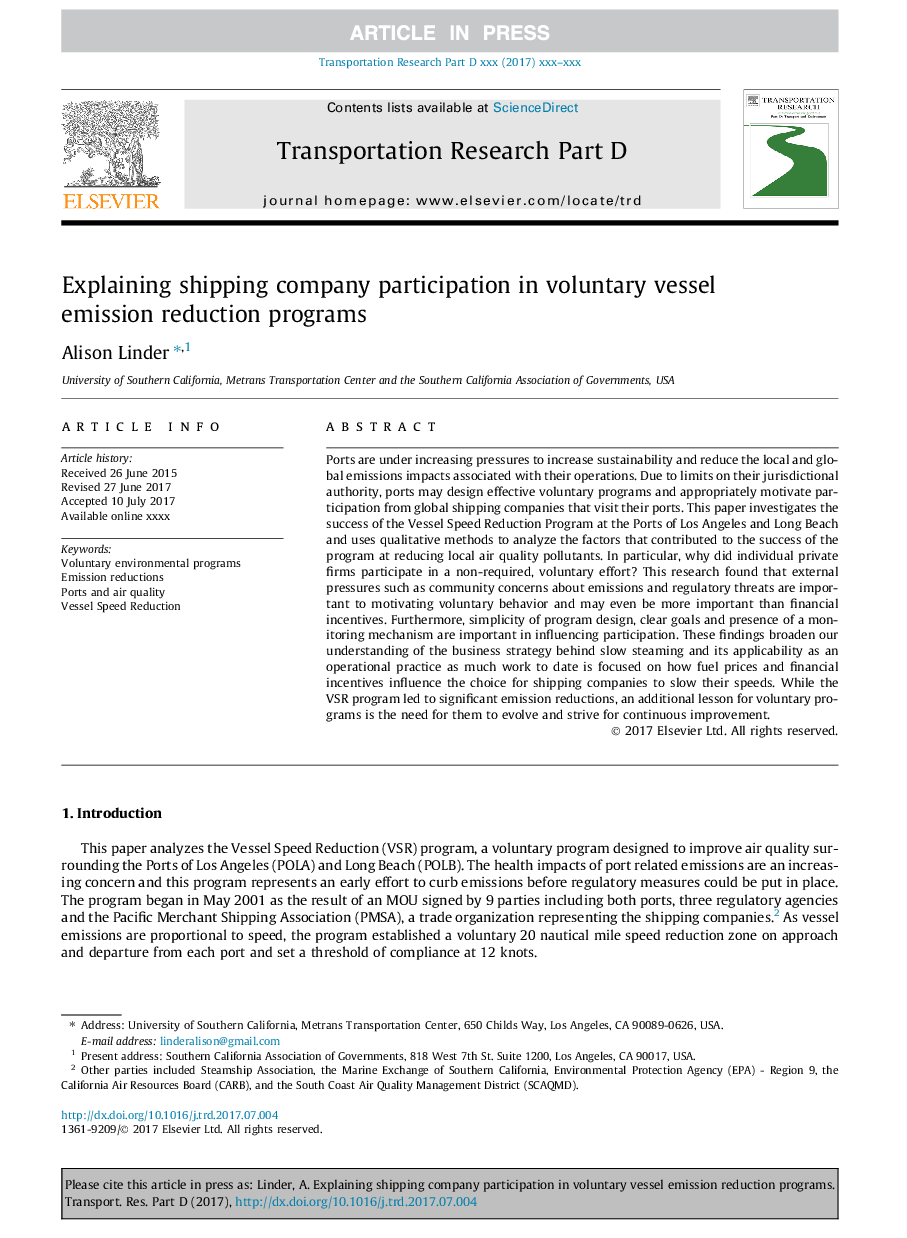| Article ID | Journal | Published Year | Pages | File Type |
|---|---|---|---|---|
| 7498700 | Transportation Research Part D: Transport and Environment | 2018 | 12 Pages |
Abstract
Ports are under increasing pressures to increase sustainability and reduce the local and global emissions impacts associated with their operations. Due to limits on their jurisdictional authority, ports may design effective voluntary programs and appropriately motivate participation from global shipping companies that visit their ports. This paper investigates the success of the Vessel Speed Reduction Program at the Ports of Los Angeles and Long Beach and uses qualitative methods to analyze the factors that contributed to the success of the program at reducing local air quality pollutants. In particular, why did individual private firms participate in a non-required, voluntary effort? This research found that external pressures such as community concerns about emissions and regulatory threats are important to motivating voluntary behavior and may even be more important than financial incentives. Furthermore, simplicity of program design, clear goals and presence of a monitoring mechanism are important in influencing participation. These findings broaden our understanding of the business strategy behind slow steaming and its applicability as an operational practice as much work to date is focused on how fuel prices and financial incentives influence the choice for shipping companies to slow their speeds. While the VSR program led to significant emission reductions, an additional lesson for voluntary programs is the need for them to evolve and strive for continuous improvement.
Related Topics
Life Sciences
Environmental Science
Environmental Science (General)
Authors
Alison Linder,
